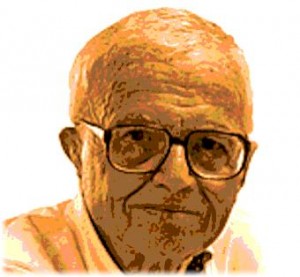 Back in my student days, it seemed that almost every one of my contemporaries owned a copy of Desiderata. It was usually displayed in poster form – alongside the mandatory posters of Jim Morrison, Bob Dylan, and Che Guevara.
Back in my student days, it seemed that almost every one of my contemporaries owned a copy of Desiderata. It was usually displayed in poster form – alongside the mandatory posters of Jim Morrison, Bob Dylan, and Che Guevara.
More often than not, the poem was credited to Anonymous and was described as having been found in an old church – sometimes named as Old St Paul’s – in 1692. In fact the poem was written much later. In 1927. By a chap named Max Ehrmann. But why let a few facts get in the way of a good story?
With a particularly acrimonious election campaign now underway, I recently found myself recalling snatches of Desiderata. In particular, I found myself recalling the part that advises:
‘Speak your truth quietly and clearly; and listen to others, even the dull and the ignorant; they too have their story.’
Also, the further suggestion:
‘Avoid loud and aggressive persons, they are vexations to the spirit.’
What is it about politics that makes so many people – politicians, journalists, and entrenched supporters of one side or the other (but, regrettably, mainly from the left) – feel that they need to shout? What is it that makes them feel that they need to be loud and aggressive?
Trust me: if you have something worth saying, you may speak your truth quietly and clearly and I will be only too happy to listen. But if you persist in shouting, I will simply attend to more measured voices.









